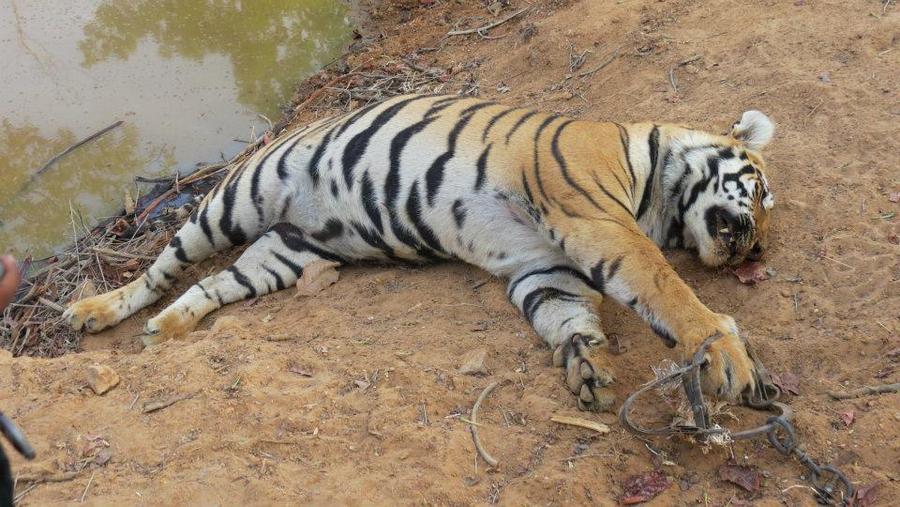三年前成立、擁有47個科技公司成員的「終止網路野生動物走私聯盟」(Coalition to End Wildlife Trafficking Online)5日發表最新進度報告——他們總共阻止了超過1160萬筆網路瀕危野生動物交易。
被這些科技公司擋下的商品包括活老虎、爬行動物、靈長類動物和鳥類,以及大象、穿山甲和海龜等物種的產製品。
該聯盟於2018年由世界自然基金會(WWF)、國際野生動物貿易研究委員會(TRAFFIC)和國際動物福利基金會(IFAW)共同召集。

網路提供了野生動物走私者一個不易受監管的交易空間,「終止網路野生動物走私聯盟」串連科技和保育界,在整個網際網路上建立一致的監控政策。
聯盟成立初期有21家創始成員公司,現在規模擴大了一倍多,成員遍及非洲、亞洲、歐洲和美洲,阿里巴巴、eBay、Etsy、臉書、谷歌、Instagram、微軟和Pinterest都是聯盟的成員。百度等許多中國科技公司也加入,但最大的網路公司微信則不是。
最新的聯盟成員之一是社群媒體平台 TikTok,去年3月加入後,推出了新的野生動物政策,增加了執法力度,並制定公共服務公告,以教育使用者如何幫助保護瀕危物種。
TRAFFIC資深專案官員葛瑞因(Giavanna Grein)說:「與社群媒體平台合作對於減少野生動物網路交易至關重要。我們感謝 TikTok 認真看待這個問題,並加緊確保他們的平台上沒有野生動物販運的空間。」
網路野生動物走私來自消費者對象牙、犀牛角、大型貓科動物皮以及活體寵物的需求,聯盟表示,社群媒體上展示的新奇寵物影像某種程度上也刺激了這種需求。
「網路和實體市場的非法野生動物貿易正在減少野生物種的數量,並導致全球發生災難性的生物多樣性喪失,」聯盟發表報告後表示。
聯盟2021年進度報告關鍵數據
- 聯盟成員在社群媒體上創造了1,088,679,149次曝光和互動,幫助使用者了解瀕危物種面臨的威脅、了解平台所禁止的內容並檢舉可疑內容。
- 聯盟的線上學習計畫「OWLET」 和面對面培訓課程,一共培訓了2,376名社群平台員工,教導他們如何判斷平台上的非法野生動物交易資訊。
- 聯盟的「Cyber Spotter」公民科學計畫已向這些社群平台檢舉了11,000多個非法野生動物販賣資訊。
- 聯盟還開發了一個關鍵字資料庫,其中包含2,500多個已知關鍵字的多種語言版本,平台間定期共享以增強自動化偵測。
與WWF和TRAFFIC合作的野生動物走私貿易專家艾倫(Crawford Allan)表示,自18個月前聯盟發布2020年進度報告以來,聯盟又多刪除了830萬件違禁野生動物販賣資訊。
艾倫在野生動物保護、政策和監管方面有25年的經驗,獲得了500萬美元的Google全球影響力獎,並且是美國總統野生動物走私特別工作小組諮詢委員會的前成員。
艾倫主持TRAFFIC在數十個國家的黑市調查行動,並協助強力執法和國際大規模查緝、重逮捕和起訴。
他說,聯盟成員擋下了數百萬件販賣資訊有兩個原因,第一是網路野生動物販售資訊增加,第二是科技公司對這個威脅的反應,包括強化自動資訊判別系統。
艾倫說,儘管阻止超過1160萬筆網路瀕危野生動物交易有所幫助,還有很多野生動物交易仍在進行中。
「整體而言,這只是野生動物走私的一小部分,但隨著全球更多公司堅持努力,我們將繼續擴大我們的影響力,」他說。
「野生動物走私是門大生意,需要大的創新解決方案,以確保它不能威脅物種和破壞貧困社區的生計。」
聯盟成員公司加強了他們的野生動物政策,提高員工判別潛在非法野生動物和活體動物販賣資訊的能力,對聯盟偵察計畫中野生動物專家和志願者報告的可疑資訊採取行動,並透過關鍵字增強演算法,建立檢舉路徑和彈出式警報,讓使用者能夠檢舉可疑內容,並相互分享最佳實踐。
IFAW 的野生動物運動者海徹曼 (Lionel Hachemin)說:「聯盟網路偵察員計畫接受培訓的志願者,是我們在網路上的眼睛。他們會
留意有關大象、鳥類和爬行動物等目標物種的資訊,一旦他們懷疑有違規行為,就會向我們檢舉,然後我們會與相關平台分享以採取進一步行動。」
社群媒體使用者可以查看聯盟的禁止野生動物交易政策來了解哪些物種不應交易,並直接在社群媒體平台上或透過聯盟的線上舉報頁面檢舉,幫助保護瀕危物種。
The budding Coalition to End Wildlife Trafficking Online, with 47 member companies across the tech sector, issued its second progress report on Tuesday – collectively they have blocked more than 11.6 million transactions for endangered wildlife online.
The blocked listings advertised live tigers, reptiles, primates and birds for the exotic pet trade, amd products derived from species like elephants, pangolins and marine turtles.
The Coalition was convened in 2018 by three conservation organizations – WWF, a Swiss foundation with a network active in 100+ countries; TRAFFIC, the UK-based wildlife trade monitoring network; and the US-based International Fund for Animal Welfare, IFAW.
Working across the technology and conservation sectors, the Coalition is creating consistency in policies and monitoring across the Internet, which provides a largely unregulated space for wildlife traffickers to identify interested buyers and start transactions.
Since launching with 21 member companies, the Coalition has more than doubled in size and now includes operations across Africa, Asia, Europe, and the Americas.
Alibaba, eBay, Etsy, Facebook, Google, Instagram, Microsoft, and Pintrest are all members of the Coalition. Many Chinese tech companies such as Baidu are members, but not WeChat, the largest.
One of the newer Coalition members is the social media platform TikTok, which joined last March and has since introduced new wildlife policies, increased enforcement efforts, and developed public service announcements to educate users on how to help keep endangered species #OfflineAndInTheWild.
“Partnering with social media platforms is critical to have an impact in reducing wildlife trafficking online,” Giavanna Grein, senior program officer with TRAFFIC said.
We are grateful to TikTok for taking this issue seriously and stepping up to ensure there is no home for wildlife trafficking on their platform,” she said.
Online wildlife trafficking is driven by consumer demand for elephant ivory, rhino horn and big cat skins, as well as for live pets, which the Coalition says is partly fueled by the promotion of exotic pet ownership and interactions on social media.
“Illegal wildlife trade, both online and in physical markets, is decimating populations of wild species and is a contributor to the catastrophic biodiversity loss seen globally,” the Coalition said in a statement accompanying the release of its new report.
Coalition’s 2021 Progress Report By the Numbers
Company user communications received 1,088,679,149 impressions and engagements on social media, helping users become aware of the threats to endangered species, understand what is prohibited on company platforms and report suspicious content.
Through the Coalition’s e-learning program, OWLET, and in-person training sessions, 2,376 company staff have received training to detect illegal wildlife on their platforms.
More than 11,000 listings for illegal wildlife have been reported to company members through the Coalition’s citizen science Cyber Spotter program.
The Coalition has developed a key search words database with over 2,500 known search terms in multiple languages used to avoid detection online that is shared regularly with companies to enhance automation.
Since the release of the Coalition’s 2020 progress report 18 months ago, Coalition companies have removed an additional 8.3 million listings for prohibited wildlife, says Crawford Allan, who works with both WWF and TRAFFIC.
An international expert on wildlife trafficking and trade, with 25 years in wildlife conservation, policy and regulation, Allan is the recipient of a $5 million Google Global Impact Award Grant, and is a former member of the Advisory Council to the U.S. Presidential Task Force on Wildlife Trafficking.
Allan has led TRAFFIC’s black market investigations in dozens of countries and has supported strong enforcement action and some of the largest seizures, major arrests and prosecutions internationally.
He says the fact that Coalition members could block millions of listings is due to two factors – the increased availability of wildlife online a nd the response by tech companies to address this threat, including enhanced automated detection systems.
Allan says that even through blocking more than 11.6 million transactions for endangered wildlife online is helpful, much more wildlife trafficking is still going on.
“Overall, it is a fraction of prohibited wildlife that’s out there, but we will continue to scale our impact even further with determined efforts by more companies globally,” he said.
“Wildlife trade is big business,” Allan says, “it needs big innovative solutions to make sure that it does not threaten species and undermine the livelihoods of the poorest communities.”
Coalition member companies have strengthened their wildlife policies, increased staff ability to detect potential illegal wildlife products and live animals, taken action on suspicious listings reported by wildlife experts and volunteers in the Coalition’s Wildlife Cyber Spotter Program, enhanced algorithms through provided search words, created reporting pathways and pop-up alerts to empower users to report suspicious content and sharing best practices with one another.
Lionel Hachemin, Wildlife Campaigner at IFAW, said, “The volunteers that are trained as part of the Coalition’s Cyber Spotter Program are our extra set of eyes on the web. They are provided with information on priority species, such as elephants, birds, and reptiles, and whenever they suspect a violation, they report it to us, after which we share it with the related platforms for further action.”
Platform users can help keep endangered species #OfflineandIntheWild by reviewing the Coalition’s Prohibited Wildlife Policy framework to understand which species shouldn’t be traded and reporting listings directly on company platforms or through the Coalition’s online reporting page.
※ 全文及圖片詳見:ENS








